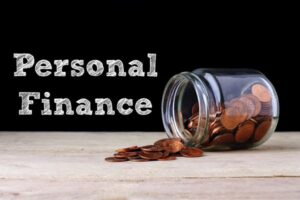Getting your finances under control can be challenging when you’re constantly bombarded with financial advice and information. But learning how to manage your finances is crucial for your long-term security and achieving your goals. Many Americans repeatedly fall into the same financial traps, which can damage their financial health for years to come. These mistakes, such as failing to follow basic budgeting rules or making hasty investment decisions, can accumulate over time, making it more difficult to achieve financial freedom. This article examines 10 common mistakes people make with their finances that can damage their financial health and offers practical tips to avoid them and maintain their financial well-being.
Not Creating a Budget:
Creating and sticking to a budget is the first step to good financial management. Failing to track your income and expenses is like driving a car without knowing your financial situation. Many people don’t create a budget because they think it’s too time-consuming or restrictive, but this thinking can be costly. List all your income sources and categorize your expenses into fixed costs (such as rent and utilities) and variable costs (such as dining out and entertainment). You can use a budgeting app or a simple spreadsheet to track your spending and identify where you might be wasting money.
Holding a Large Debt with a High Interest Rate:
Credit card debt is one of the most expensive ways to borrow money, often with an annual interest rate of over 20%. When you only make the minimum payment, you’re paying mostly interest and very little principal. This creates a cycle where your debt accumulates faster than you can pay it off. Pay off the high-interest debt first, then make only the minimum payments on other bills. Consider consolidating debt or transferring balances to a lower interest rate, but avoid adding new debt to already paid-off credit cards.
Neglecting Emergency Savings:
Life can throw unexpected curveballs at you, such as job loss, a sudden medical emergency, or the need for car or home repairs. These situations force you to use credit cards or loans, which can worsen your debt and increase your financial stress. Start with $500 and gradually build an emergency fund to cover three to six months of living expenses. Keep this money in a high-yield savings account, separate from your regular checking account. This reduces the temptation to use it for unnecessary purposes.
Delay Investing:
When investing, time is your best friend because of the power of compound interest. Many people delay investing because they think they need a lot of money to get started or because they don’t understand the market well enough. But even a small, regular deposit into a diversified investment account can grow significantly over decades. Start with a retirement plan offered by your employer, especially if your company is willing to match your contributions. Consider low-cost index funds or funds with a maturity date so you can immediately diversify your money across different sectors without having to learn much about the market.
Not Thinking About Insurance Needs:
Insurance is a way to protect your money and assets from significant losses. Many people don’t buy insurance at all or buy too little to save on premiums. This idea of saving money in the short term but costing you money in the long run can have serious consequences for your finances. Think about what kind of health insurance, auto insurance, renters insurance, homeowners insurance, or disability insurance you need. Life insurance is essential when others depend on your income. Review your coverage annually and adjust it as your life changes.
Not Planning for Retirement:
If you only receive a state pension, you won’t have enough money to live comfortably in retirement. Many working people don’t realize how much they’ll need in retirement or assume they’ll never stop working. Thanks to compound interest, you’ll need to save less each month the sooner you start saving for retirement. Taking advantage of tax-advantaged accounts like individual retirement accounts (IRAs) and 401(k)s can work to your advantage. If your employer offers a matching contribution, make sure you contribute enough to receive the full match. This is like receiving free money and can significantly increase your retirement savings.
Emotional Spending:
People often let their emotions guide them to purchases that don’t align with their long-term goals. Shopping under pressure, impulsively, or to stay on top of social media trends can quickly derail your budget and savings plans. Set a waiting period before making a major purchase. It’s best to wait 24 hours for small purchases and longer for larger ones. Consider whether the purchase aligns with your values and financial goals. Discover what motivates you to spend money when you’re feeling down, and consider alternative, non-spending ways to manage your emotions.
Not Checking Your Credit Report:
Your credit report contains important information that can affect your ability to get a loan, find a home, or even find a job. It’s not uncommon for errors to appear on your credit report, and these errors can unfairly lower your credit score and cost you thousands of dollars in higher interest rates. Check your credit report annually with all three major credit bureaus at AnnualCreditReport.com. Correct any errors promptly and monitor your credit score closely. A good credit score can lead to better loan terms, insurance rates, and other financial options throughout your life.
Co-signing for a Loan:
Co-signing for a loan for a family member or friend may seem like a good idea, but it carries significant financial risks. If the primary borrower defaults on the loan, you, as a co-signer, are legally liable. This liability will appear on your credit report and change your debt-to-income ratio, potentially making it harder to borrow money. Before co-signing, consider whether you can repay the loan and explore other ways to help, such as educating them about financial management or helping them with budgeting.
Falling Into Get-Rich-Quick Scams:
People looking for a get-rich-quick scheme are easy targets for investment fraud, cryptocurrency scams, and multi-level marketing. These schemes often prey on people’s greed and desire for money, offering enormous profits with little or no risk. Achieving true wealth requires time, effort, and patience. Be wary of investments that promise high returns or pressure you to make quick decisions. Do your research, consult an experienced financial advisor, and remember that if something sounds too good to be true, it probably is.
Conclusion:
To avoid these common personal finance mistakes, be well-informed, disciplined, and in control of your finances. Financial success isn’t about perfection; it’s about making smart choices over time and learning from your mistakes. Start with one or two areas that are most relevant to your current situation and then add other strategies as they become habits. By making smart financial choices, budgeting wisely, managing debt, and saving, you can build a solid financial foundation and achieve your long-term goals. Taking control of your money is an investment in your future self, leading to a more secure and successful life.
FAQs:
1. How much should I save for a rainy day?
Your emergency fund should cover three to six months of living expenses. Start small, for example, with $500 to $1,000, and gradually increase your savings. If you don’t have a steady job or income, you may need to save up to six months’ worth of expenses.
2. When should I start investing if I still have debt?
First, pay off high-interest debt, typically debt with an interest rate of 7% or higher. However, you should always contribute enough to your employer’s pension plan to receive a full contribution from the company. This way, you can get a 100% return on your investment right away.
3. Why is some debt good and some bad?
Mortgages and student loans are examples of good debt; they can help you build wealth or save on taxes. People use bad debt to buy things, often with high interest rates, like credit cards or car loans, to buy cars that are too expensive for them.
4. How often should I review my budget?
Review your budget monthly to see where you stand and adjust it as needed. Conduct a more comprehensive review every three months or when important events occur, such as starting a new job or moving.
5. Is it worth seeking financial advice?
Professional financial advice can be helpful, especially with complex matters like preparing for retirement, paying taxes, or managing investments. Look for a financial planner who only charges fees and doesn’t make money from selling items. This way, you can be sure their advice is in your best interest.




